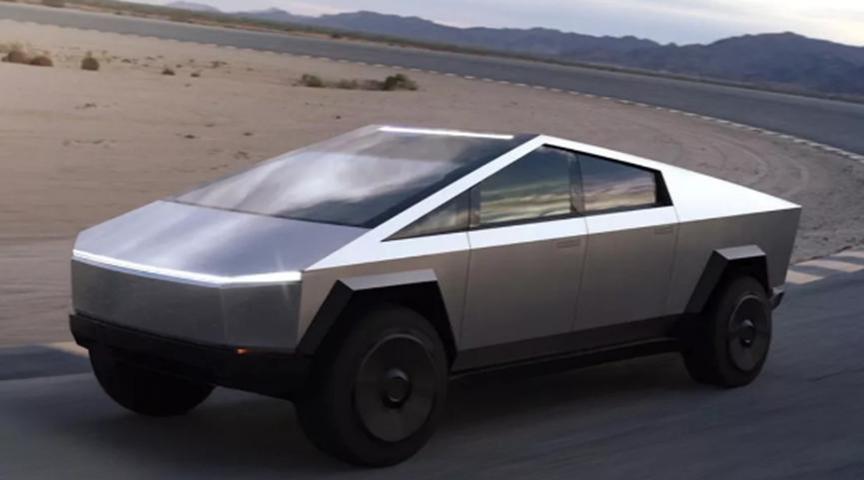After 2021, under the dual role of the epidemic and supply chain problems, the automotive industry may be changed forever. In particular, global car production was hampered by the shortage of chips, but due to the rebound in consumer demand and the huge shortage of models such as trucks, car prices and profits also hit record highs in the year.
U.S. auto OEM executives and analysts believe that lower auto inventory levels and higher prices this year are among the few changes that may never return to pre-2021 levels. Other changes involve electric vehicles, supply chains and new competitors, among others. CnBC's report lists five major changes in the U.S. auto industry.
Electric vehicle
2021 has become an inflection point in the new energy vehicle market, and almost all major automakers have announced the start of the layout of electric vehicles. An important factor is Tesla's rise to become the world's most valuable automaker by the end of 2020 and is considered "more focused on environmental, social and corporate governance."
While electric vehicles, including plug-in hybrids, remain a niche market, accounting for only 4 percent of the U.S. market, industry executives and experts expect that percentage to grow significantly over the next decade.

Tesla Cyberruck
In September, Rivian, a new power in American car manufacturing, began to deliver R1T electric pickup trucks, and in December GMC Hummer began to deliver electric off-road SUVs. The Ford F-150, the best-selling model in decades in the U.S. this spring, will be available in an electric version, and the Tesla Cyberruck is also expected to hit the market by the end of the year. The old and new forces will compete fiercely in the field of new energy.
SPAC
Electric vehicle companies' listings through special purpose acquisitions (SPAC) began at the end of 2020 and began to accelerate in 2021.
From battery and charging suppliers like Solid Power or ChargePoint to electric vehicle companies like Lucid Group, the auto industry has changed the landscape. While not all companies will succeed, as Tesla demonstrates, even one or two new companies will be enough to put pressure on traditional automakers to make a shift.
Other new EV startups that will go public since late 2020 include Lordstown Motors, Canoo, Electric Last Mile Solutions, and Faraday Future, among others. Electric vehicle startup Rivian traded through an IPO rather than an SPAC.
Car inventory
Due to the outbreak of the epidemic, many automakers began to gradually stop work in the spring of 2020, and then stopped again due to chip shortages despite the recovery in demand, which led to a record low in the number of new cars available for sale in the United States.
In the past, the auto industry has stuck to the low car inventory game, but it may not really continue. Automakers in Detroit, for example, typically have the highest levels of inventory.
Tyson Jominy, vice president of data and analytics at J.D. Power, believes the longer inventory levels are lowered, "the more likely these changes are to become permanent." ”
The challenge, he pointed out, is that the automobile is a fixed-asset industry, with a history of industry regression and overproduction, because the market is always confusing.
According to Cox Automotive, the auto industry had about 1 million new cars at dealerships in December 2020, and there were 1.8 million fewer new cars available for consumer purchase this year, 2.5 million fewer than in 2019. J.D. Power reported that last month the nationwide auto inventory was 850,000 units, while retail sales typically numbered 1.4 million.
Price
As consumers are willing to pay higher prices for new cars, the lack of supply has led to dealer profits reaching record highs. Some dealers also raise prices or make "market adjustments" on popular products. Analysts say that while this is not unprecedented, there are more numbers and ranges than ever before.
"From now on, everyone will make more money because of it. I just don't think it's going to go back to pre-pandemic levels, Jeff, president of Sonic Motors, told CNBC earlier this year, saying the whole game has changed over the past year.
J.D. Power reports that about 89 percent of new cars bought by consumers are priced close to or higher than the manufacturer's suggested retail price, or MSRP or list price. This compares to 12% in December 2019.
Cox Automotive reports that the average list price of a new car in November 2021 is about $45,000, up from less than $40,000 a year ago.
"The price of some models will likely be raised permanently," said Jeff Schuster, president of LMC Americas, "and I don't think prices will return to pre-shortage levels and subsidies won't continue to increase." ”
supply chain
Chip shortages and electric vehicles are prompting automakers to rethink their logistics and supply chains to avoid a repeat of the situation. The changes they've made range from more vertical integration of component production to joint ventures or partnerships with suppliers of batteries and chips for electric vehicles.
Toyota announced late last year that it would build a new $1.29 billion battery plant for electric vehicles in North Carolina. This comes after General Motors, Ford and other companies have also announced moving production of evicted battery modules closer to home to reduce costs and reduce the risk of supply chain disruptions.
More and more companies are rethinking their supply chain models, working to learn from this crisis and actively transforming their supply chains to eliminate possible vulnerabilities in the future.
(Proofreading/Jouvet)